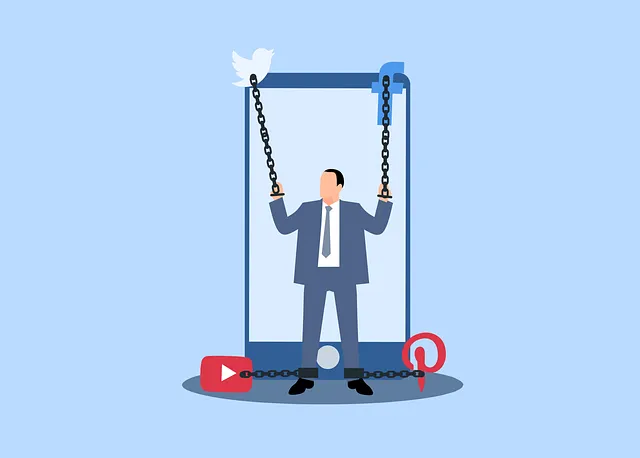Burnout among healthcare workers is a growing concern, especially in high-pressure environments like those in Littleton or served by Kaiser. Recognizing burnout symptoms—emotional exhaustion, depersonalization, and reduced personal accomplishment—is crucial. This issue arises from prolonged exposure to intense situations and heavy workloads. Preventive measures include self-care practices, social skills training, and positive thinking. Organizations like Kaiser in Littleton provide mental health support through counseling services and community initiatives. Promoting self-care, offering on-site therapy, peer groups, and hotlines can help healthcare providers prioritize their mental well-being. Both Littleton and Kaiser have implemented successful programs, including coping skills workshops, mental wellness coaching, and extensive EAPs, to combat burnout and enhance job satisfaction by providing effective how to get mental health help resources.
Healthcare provider burnout is a growing concern, impacting patient care and well-being. This article explores comprehensive strategies to prevent burnout among healthcare workers. We delve into the root causes, emphasizing the vital role of mental health support in managing stress. By examining successful initiatives from leading organizations like Littleton and Kaiser, we offer practical insights on self-care promotion and highlight accessible mental health resources. Discover actionable steps to foster a resilient healthcare workforce.
- Understanding Burnout Among Healthcare Providers
- The Role of Mental Health Support in Prevention
- Strategies for Promoting Self-Care and Wellbeing
- Case Studies: Success Stories from Littleton and Kaiser
Understanding Burnout Among Healthcare Providers

Burnout among healthcare providers is a growing concern, especially in demanding settings like Littleton or areas served by Kaiser. It goes beyond mere job dissatisfaction; burnout refers to a state of emotional exhaustion, depersonalization, and reduced personal accomplishment. This syndrome often results from prolonged exposure to high-stress environments where professionals constantly manage life-or-death situations, cope with heavy workloads, and face ethical dilemmas.
Recognizing the signs is crucial. Healthcare workers may exhibit increased irritability, cynicism towards patients or colleagues, decreased motivation, and a sense of detachment from their work. To combat this, adopting self-care practices like regular exercise, sufficient sleep, and healthy eating habits alongside social skills training and fostering positive thinking can be instrumental in preventing burnout. Resources such as counseling services offered by Kaiser or community mental health initiatives in Littleton can also provide much-needed support.
The Role of Mental Health Support in Prevention

Mental health support plays a pivotal role in preventing healthcare provider burnout. Accessing professional counseling and therapy services, such as those offered by Littleton-based Kaiser, can provide much-needed respite from the demanding nature of the job. These services not only help providers process stress and difficult patient experiences but also equip them with effective coping strategies, including mindfulness meditation and positive thinking techniques, to maintain resilience in the face of adversity.
Integrating mindfulness meditation practices into daily routines has been shown to significantly enhance mental well-being. Additionally, building resilience through therapeutic interventions enables healthcare professionals to better navigate challenging situations, ultimately contributing to a more sustainable work environment. By prioritizing their mental health, providers can improve patient care and foster healthier relationships within their teams, creating a positive feedback loop that benefits both individual practitioners and the broader healthcare organization.
Strategies for Promoting Self-Care and Wellbeing

Promoting self-care and wellbeing among healthcare providers is a crucial strategy to combat burnout. Encouraging professionals to prioritize their mental health, much like they do for their patients, can significantly enhance job satisfaction and resilience. One effective approach involves providing accessible resources for stress management and crisis intervention. This may include on-site therapy sessions, peer support groups, or hotlines offering guidance in navigating personal and professional challenges.
Litttleton’s healthcare institutions, such as Kaiser, can also foster a culture of self-care by integrating coping skills development into staff training programs. Teaching mindfulness techniques, effective time management strategies, and healthy stress-coping mechanisms empowers providers to maintain their well-being even in demanding environments. Additionally, promoting cultural sensitivity in mental healthcare practice ensures that professionals are equipped to support diverse patient populations, reducing potential burnout triggers related to cultural misunderstandings or barriers to care.
Case Studies: Success Stories from Littleton and Kaiser

In the pursuit of mitigating healthcare provider burnout, two notable organizations, Littleton and Kaiser, have emerged as success stories through implementing innovative strategies. Littleton, a community-focused healthcare provider, has developed robust coping skills development programs that prioritize emotional healing processes for its workforce. These initiatives include regular mental health workshops, peer support groups, and access to professional counseling services. By fostering an environment where open discussions about stress management are encouraged, Littleton has significantly improved the mental wellness coaching programs available to its employees, leading to higher job satisfaction and reduced burnout rates.
Similarly, Kaiser Permanente, a large healthcare system, has incorporated holistic well-being strategies into their employee support services. They offer comprehensive mental health resources, such as teletherapy sessions, mindfulness training, and stress management workshops. Additionally, Kaiser has implemented an extensive employee assistance program (EAP) that provides confidential counseling and referral services for both personal and work-related issues. These interventions have not only contributed to the emotional healing processes of healthcare providers but also equipped them with valuable coping skills to navigate the demanding healthcare landscape, ensuring a healthier and more resilient workforce across these organizations.
Burnout among healthcare providers is a pressing issue, but with the right strategies, it can be mitigated. By understanding the causes of burnout, implementing mental health support, and fostering self-care practices, healthcare organizations can create sustainable environments for their staff. The case studies from Littleton and Kaiser demonstrate that proactive approaches to burnout prevention not only improve provider well-being but also enhance patient care. Accessing mental health resources, such as those offered by Littleton, and integrating holistic wellness programs, like Kaiser’s initiatives, can be instrumental in creating a culture of resilience and satisfaction within healthcare settings.






